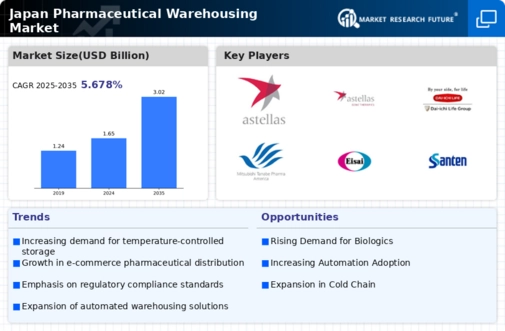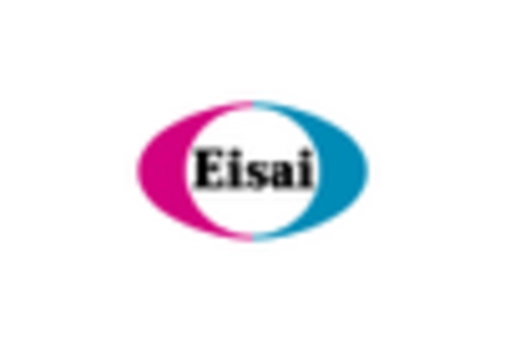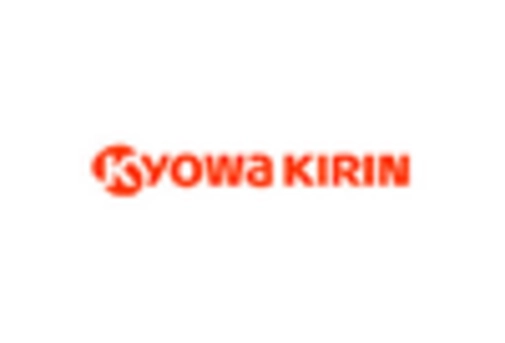Aging Population
Japan's aging population is a significant demographic trend that is driving the pharmaceutical warehousing market. As the population ages, there is an increasing demand for pharmaceuticals and healthcare products tailored to the needs of older adults. This demographic shift necessitates a more efficient supply chain and warehousing strategy to ensure timely delivery of essential medications. The Japan government has recognized this trend and is implementing policies to support the healthcare sector, which includes enhancing logistics and warehousing capabilities. As a result, pharmaceutical companies are likely to invest in specialized warehousing solutions that cater to the unique requirements of an aging population. This focus on demographic changes is expected to shape the future of the Japan pharmaceutical warehousing market, creating opportunities for growth and innovation.
E-commerce Expansion
The rapid expansion of e-commerce in Japan is significantly influencing the pharmaceutical warehousing market. With more consumers turning to online platforms for their healthcare needs, pharmaceutical companies are compelled to adapt their distribution strategies. This shift has led to an increased demand for warehousing solutions that can accommodate the complexities of e-commerce logistics, such as same-day delivery and order tracking. According to market data, the e-commerce sector in Japan is expected to grow at a compound annual growth rate (CAGR) of over 10% in the coming years. Consequently, pharmaceutical companies are investing in modern warehousing facilities equipped with advanced technology to streamline operations and enhance customer satisfaction. This trend underscores the necessity for agile and responsive warehousing solutions within the Japan pharmaceutical warehousing market.
Regulatory Compliance
Regulatory compliance remains a critical driver in the Japan pharmaceutical warehousing market. The stringent regulations imposed by the Pharmaceuticals and Medical Devices Agency (PMDA) necessitate that warehousing facilities adhere to high standards of quality and safety. This includes maintaining proper storage conditions, ensuring traceability of products, and implementing robust inventory management systems. Companies that fail to comply with these regulations risk facing severe penalties, which can adversely affect their market position. As a result, many firms are investing in compliance training and upgrading their facilities to meet these requirements. The increasing focus on regulatory compliance is likely to drive demand for specialized warehousing solutions that cater specifically to the pharmaceutical sector, thereby shaping the future landscape of the Japan pharmaceutical warehousing market.
Technological Advancements
The Japan pharmaceutical warehousing market is experiencing a notable transformation due to rapid technological advancements. Automation and robotics are increasingly being integrated into warehousing operations, enhancing efficiency and accuracy in inventory management. For instance, the adoption of automated storage and retrieval systems (AS/RS) has been on the rise, allowing for faster order fulfillment and reduced labor costs. Furthermore, the implementation of advanced data analytics and artificial intelligence (AI) is enabling companies to optimize their supply chain processes. According to recent data, the market for warehouse automation in Japan is projected to grow significantly, indicating a shift towards more sophisticated warehousing solutions. This trend not only improves operational efficiency but also ensures compliance with stringent regulatory standards, thereby reinforcing the importance of technology in the Japan pharmaceutical warehousing market.
Global Supply Chain Integration
The integration of The japan pharmaceutical warehousing market. As Japanese pharmaceutical companies expand their reach internationally, the need for efficient warehousing solutions that can support global logistics becomes paramount. This trend is characterized by the establishment of strategic partnerships with international suppliers and logistics providers, facilitating smoother cross-border transactions. Additionally, the Japan government is actively promoting initiatives to enhance trade relations, which further encourages global supply chain integration. Companies are increasingly seeking warehousing facilities that can accommodate international standards and practices, ensuring compliance with various regulatory frameworks. This shift towards global integration is likely to influence the operational strategies of pharmaceutical companies, thereby shaping the dynamics of the Japan pharmaceutical warehousing market.




















